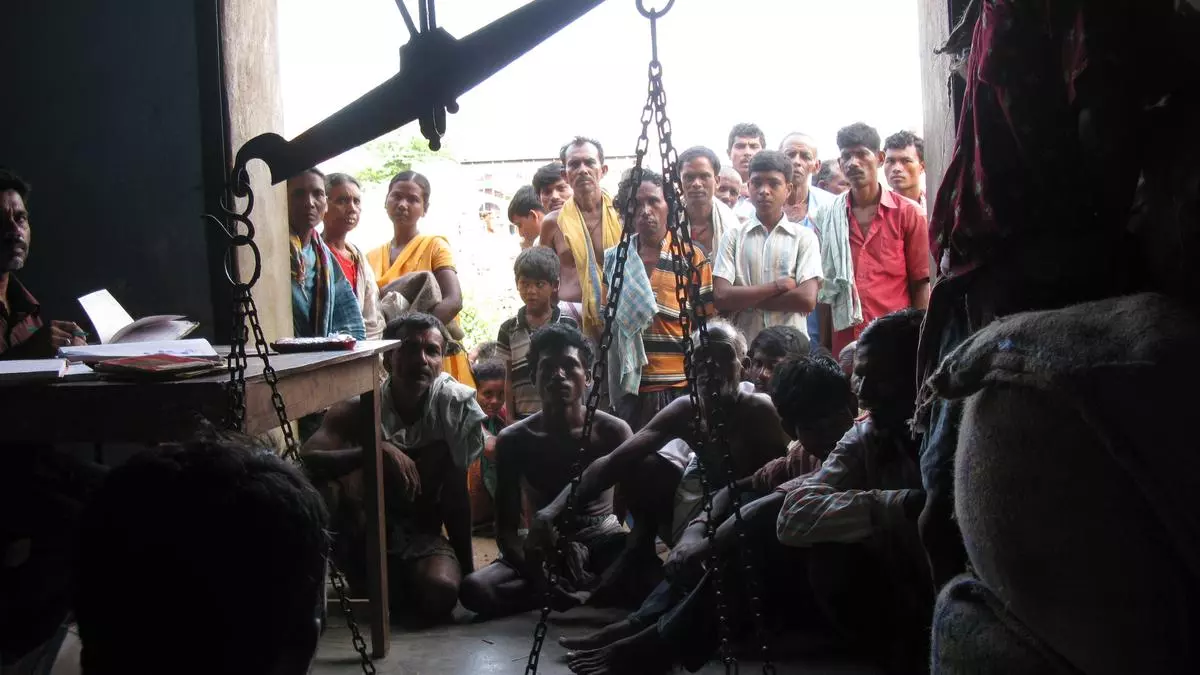 |
|
A recent study conducted by the Indian Council for Research on International Economic Relations (ICRIER) has revealed a staggering amount of leakage within India's Public Distribution System (PDS). The study, titled “Rationalising Public Distribution System in India,” estimates that approximately ₹69,108 crore worth of foodgrains—equivalent to nearly 20 million tonnes of rice and wheat—intended for free distribution to over 81 crore people, never reached the intended beneficiaries. This represents a significant loss of public resources and underscores the urgent need for systemic reforms within the PDS. The study, authored by Raya Das, Ranjana Roy, and Ashok Gulati, utilized data from the 2022-23 Household Consumption Expenditure Survey (HCES) to reach its conclusions, highlighting that almost 28 percent of the grains supplied by the Food Corporation of India (FCI) and state governments were lost due to leakage. This alarming figure necessitates a comprehensive examination of the current system and the implementation of effective strategies to mitigate this considerable waste.
The Icrier study builds upon previous research, referencing the findings of the Shanta Kumar Committee (on Re-orienting the Role and Re-Structuring of FCI) which estimated PDS leakage at 46 percent at the all-India level, rising to as high as 70 percent in some northeastern states. The Shanta Kumar Committee, which included Ashok Gulati as a member, recommended end-to-end digitalization of the PDS in 2015 to curb leakages. While the government has since implemented several digitalization initiatives, including biometric authentication through Aadhaar, the Icrier study emphasizes that these measures, while effective in improving distribution efficiency, have not completely eradicated the problem of leakage. The persistence of leakage despite these efforts suggests that a more fundamental restructuring of the PDS is necessary to address the root causes of this inefficiency. The study suggests that the resources saved by plugging these leakages could be reinvested in agriculture and rural development to improve both food and nutritional security.
A key recommendation made by the Shanta Kumar Committee, and implicitly supported by the Icrier study, is a shift towards a cash transfer system. The Committee suggested reducing the PDS coverage from 67 percent to 40 percent and gradually transitioning to cash transfers instead of distributing grains directly. This approach is argued to improve efficiency, reduce leakages, and encourage more diversified diets. However, the government has not yet adopted this recommendation fully, leaving it to the discretion of individual states. This reluctance is partly attributed to the current grain procurement system for rice and wheat, which necessitates a mechanism for distribution, with the PDS seen as the most suitable option. A former top official of the Food Ministry argued that while cash transfer is a viable option, it is not yet a suitable replacement for the current system. The official highlighted that while the current system has flaws, it offers a crucial distribution window for grains procured by the government. The study's reliance on 2022-23 data has also led to some clarifications from official sources, noting that beneficiaries received increased quantities of grains during certain months and that the sale of excess grains by beneficiaries doesn't necessarily equate to total leakage.
The Icrier study’s findings underscore the critical need for comprehensive reforms within the Indian PDS. The sheer magnitude of the financial and resource losses due to leakage demands immediate action. While digitalization initiatives have improved efficiency, they have not been sufficient to eliminate the problem. The debate surrounding a potential shift to a cash transfer system highlights the complex trade-offs involved in balancing efficiency, equity, and the existing grain procurement structure. A thorough assessment of the pros and cons of cash transfers, along with the exploration of alternative solutions, is essential to achieving the goal of effective and equitable food distribution in India. The continued reliance on a grain-centered approach, while having some merit, needs careful evaluation given its susceptibility to leakage and potential for improving overall food and nutritional security in the long run. Further research and analysis are crucial to identifying the specific factors contributing to the persistent leakage and designing effective strategies to minimize it. A multi-faceted approach encompassing technological improvements, strengthened monitoring mechanisms, and possibly a gradual transition to a more targeted cash transfer system may be necessary to ensure that the benefits of the PDS reach the intended beneficiaries.
Source: Icrier study pegs PDS leakage at ₹69,108 cr, suggests cash transfer
